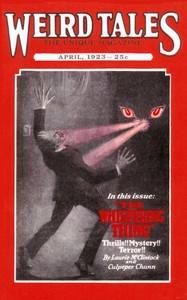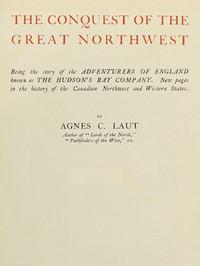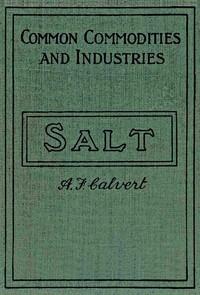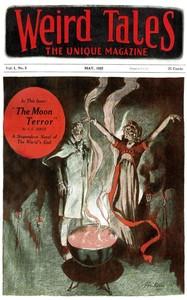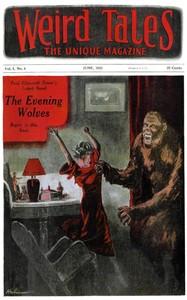|
|
Read this ebook for free! No credit card needed, absolutely nothing to pay.Words: 113868 in 67 pages
This is an ebook sharing website. You can read the uploaded ebooks for free here. No credit cards needed, nothing to pay. If you want to own a digital copy of the ebook, or want to read offline with your favorite ebook-reader, then you can choose to buy and download the ebook.

: Weird Tales Volume 1 Number 2 April 1923: The unique magazine by Various Baird Edwin Editor - Adventure stories Periodicals; Fantasy literature American Periodicals; Fantasy literature English Periodicals; Horror tales American Periodicals; Horror tales En@FreeBooksThu 08 Jun, 2023 Each of these six Periods is followed by a General Reference Summary of that period. See pp. 43, 71, 141, 174, 230, 316 For special Genealogical Tables see pp. 124, 140, 161, 172, 179, 207, 323 Suggestions to Teachers The writer of this brief manual is convinced that no hard-and-fast rules can be laid down for the use of a textbook in history. He believes that every teacher will naturally pursue a system of his own, and that by so doing he will get better results than if he attempt to follow a rigid mechanical course which makes no allowance for individual judgment and gives no scope to originality of method. The author would simply suggest that where time is limited it might be well to omit the General Reference Summaries and to read the text as a continuous narrative. Then the important points in each day's lesson might be talked over at the end of the recitation or on the following day. On the other hand, where time permits a thorough course of study, all of the topics might be taken up and carefully examined, and the General Reference Summaries may be consulted by way of review and for additional information. The pupil can also be referred to one or more books on the subjects under consideration. Instead of the teacher's asking a prescribed set of routine questions, the pupil may be encouraged to ask his on. Thus in undertaking the examination of a given topic--say, the Battle of Hastings , the issue of the Great Charter , or "The Industrial Revolution" and Watt's invention of an improved Steam Engine --there are five inquiries which naturally arise and which practically cover the whole ground. These are: 1. When did the event occur? 2. Where did it occur? 3. How did it occur? 4. What caused it? 5. What came of it? It will soon be seen that these five questions call attention first to the chronology of he event, secondly to its geography, thirdly to the narrative describing it, fourthly to its relations to preceding events, and fifthly to its relations to subsequent events. The pupil will find that while in some instances he can readily obtain answers for all of these inquiries,--for example, in the case of the Great Charter,--in other instances he will have to content himself with the answer to only a part of the questions, perhaps, in fact, to only a single one; nevertheless the search will always prove instructive and stimulating. Such a method of study, or one akin to it, will teach the pupil to think and to examine for himself. It will lead him to see the inevitable limitations and the apparent contradictions of history. It will make him realize, as pehaps nothing else can, that the testimony of different writers must be taken like that of witnesses in a court of justice. He will see that while authorities seldem entirely agree respecting details, they will generally agree in regard to the main features of important events. Last of all, and best as well as last, these five questions will be found to open up new and broader fields of inquiry, and they may perhaps encourage the pupil to continue his work on some subject in which he becomes interested, beyond the limits of the textbook and the classroom. Pursued in this way, the study of history will cease to be a dry delving for dead facts in the dust of a dead past. It will rouse thought, it will quicken the pulse of an intellectual life, and it will end by making the pupil feel the full force of the great truth: that the present is an outgrowth of the past, and that it is only when we know what men have done, that we can hope to understnad what they are now doing. D. H. M. Leading Dates THE LEADING FACTS OF ENGLISH HISTORY FIRST PERIOD Free books android app tbrJar TBR JAR Read Free books online gutenberg More posts by @FreeBooks
: The conquest of the great Northwest Volume 1 (of 2) by Laut Agnes C - Hudson's Bay Company; Northwest Canadian; Hudson Bay History@FreeBooksThu 08 Jun, 2023

: Salt and the salt industry by Calvert Albert Frederick - Salt industry and trade; Salt industry and trade England Cheshire@FreeBooksThu 08 Jun, 2023

: Weird Tales Volume 1 Number 3 May 1923: The unique magazine by Various Baird Edwin Editor - Adventure stories Periodicals; Fantasy literature American Periodicals; Fantasy literature English Periodicals; Horror tales American Periodicals; Horror tales Engl@FreeBooksThu 08 Jun, 2023
|
Terms of Use Stock Market News! © gutenberg.org.in2025 All Rights reserved.

